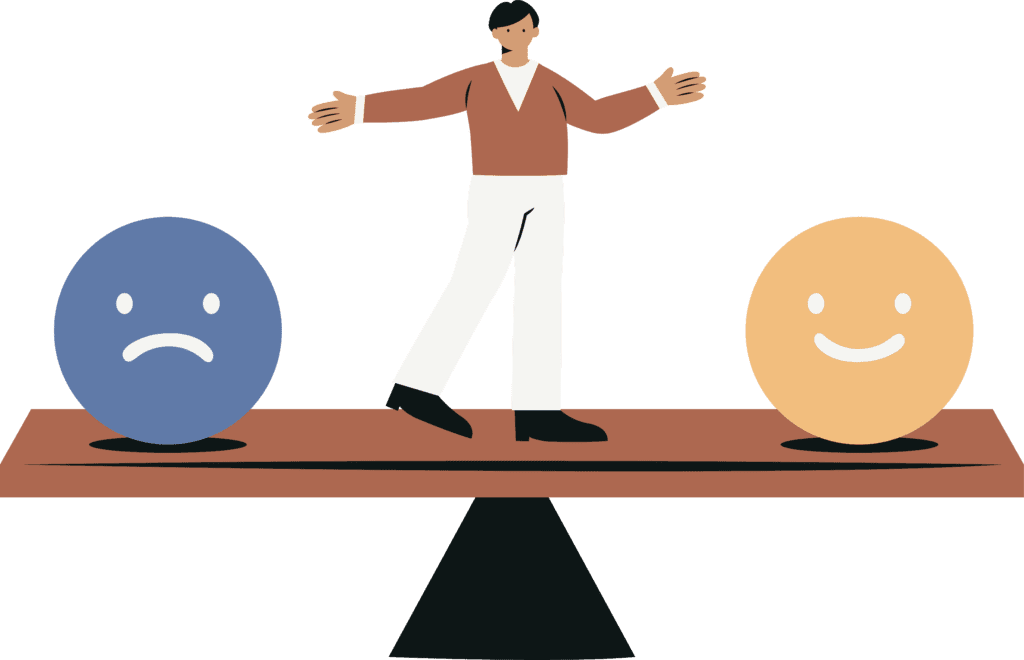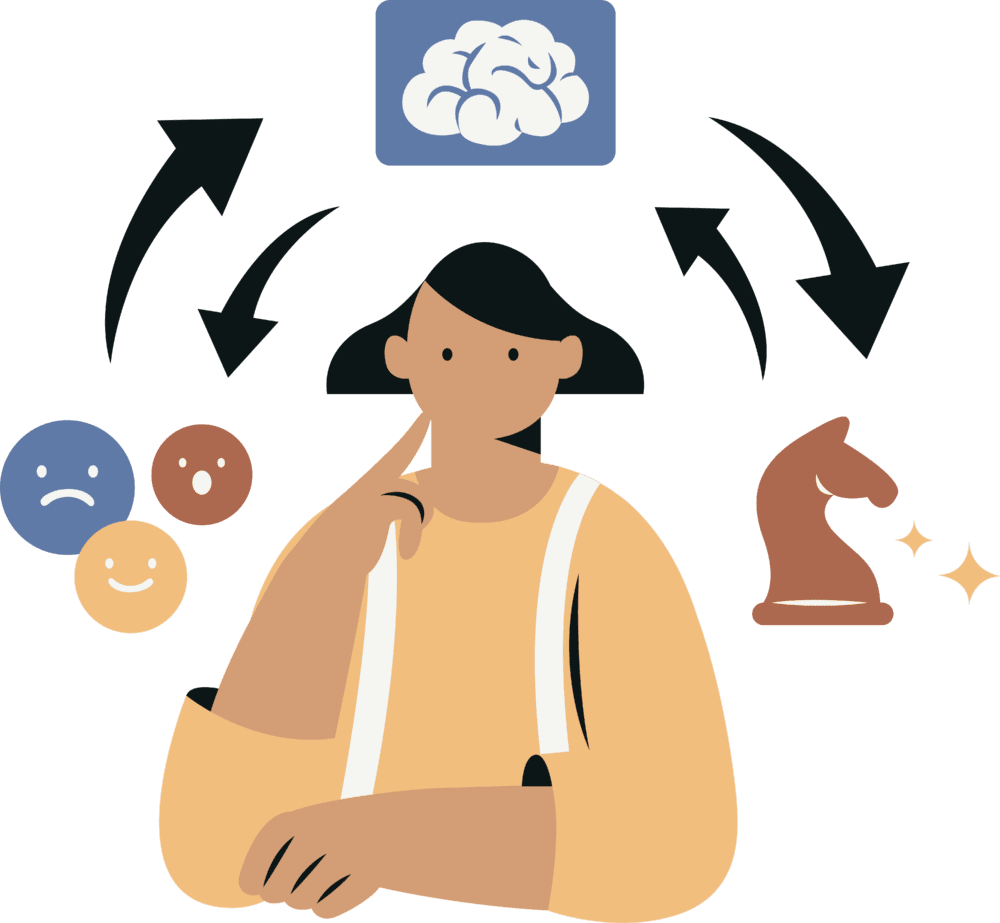The cognitive triad is a fundamental concept in cognitive behavioral therapy (CBT), a widely-used approach to treating mental health issues like depression and anxiety. This concept was developed by psychiatrist Aaron Beck in the 1960s. It serves as a framework for understanding how our thoughts can affect our emotions and behaviours.
The cognitive triad refers to three types of negative thought patterns or beliefs that are commonly seen in people experiencing depression. These patterns involve:
- Negative Thoughts About the Self
This includes feelings of worthlessness or inadequacy. People may believe they are not good enough. Or that they are failures or that they lack the qualities needed to be successful or loved. For instance, someone might think, “I am a complete failure,” or “I am not worthy of love.” - Negative Thoughts About the World
This aspect involves seeing the world as a hostile or unfair place. Individuals might feel that they are always at a disadvantage, that life is inherently difficult, or that other people are untrustworthy or unsupportive. A common thought might be, “The world is a terrible place,” or “Nothing ever goes right for me.” - Negative Thoughts About the Future
The third component involves a pessimistic outlook on the future. People might believe that their situation will never improve, that they are doomed to fail, or that happiness is unattainable. Typical thoughts might include, “Things will never get better,” or “I will always be miserable.”

How Does the Cognitive Triad Affect Mental Health?
These three types of negative thinking can create a vicious cycle that reinforces depressive symptoms. When people consistently have negative thoughts about themselves, the world, and the future, they may feel hopeless, anxious, and unmotivated. This can lead to behaviours such as withdrawal from social activities, neglecting responsibilities, and even self-destructive actions. Over time, this cycle can worsen depression and make it more challenging to break free from negative thought patterns.
Breaking the Cycle: The Role of Cognitive Behavioral Therapy
CBT aims to help people identify and challenge these negative thoughts. By recognizing when they are engaging in this thinking, individuals can learn to reframe their thoughts in a more balanced and realistic way. For example, instead of thinking, “I am a failure,” a person might learn to recognize their strengths and past successes, shifting to a thought like, “I have faced challenges before and overcome them.”
Therapists often use various techniques to help individuals understand the connection between their thoughts, feelings, and behaviours. This might include exercises like keeping a thought diary, practising mindfulness, or using techniques such as cognitive restructuring to change negative thought patterns.
Conclusion
The cognitive triad is a crucial concept in understanding how negative thinking patterns contribute to mental health issues like depression. By addressing these thoughts through cognitive behavioural therapy, individuals can learn to see themselves, the world, and their future in a more positive and realistic light. This shift can significantly improve their mental well-being and overall quality of life.
Understanding the cognitive triad can empower people to take control of their thoughts and, ultimately, their mental health. By recognizing and changing negative thinking patterns, it is possible to break the cycle of depression and move toward a more hopeful and fulfilling future.
Ready to begin? Start your online therapy journey today. Book your first session now.




